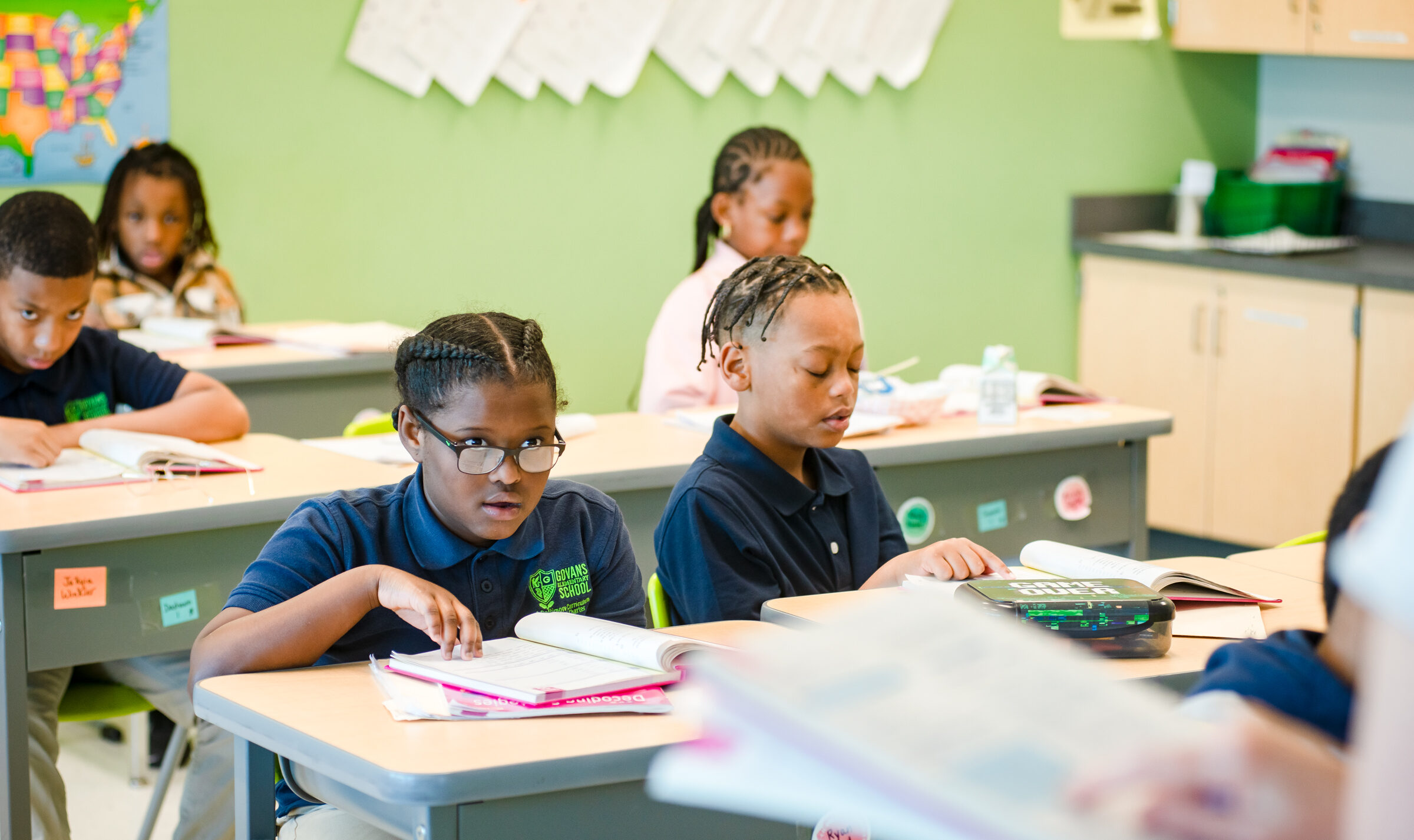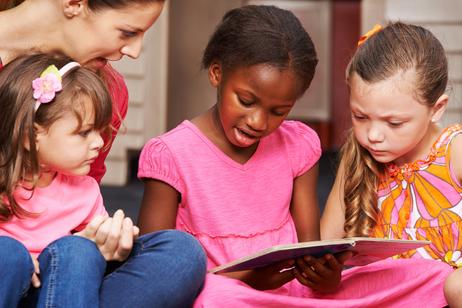How a Private School Shapes Confidence and Academic Excellence
Wiki Article
Aspects to Take Into Consideration in Choosing Independent School: Understanding What Each Institution Has to Offer for Your Youngster's Development
Choosing an independent school for a kid entails cautious consideration of multiple factors. Parents must assess the scholastic educational program and mentor approaches of numerous organizations. They need to also explore after-school activities that could enrich their child's experience. Additionally, comprehending the school's society and worths is essential for placement with household beliefs. As financial implications play a substantial function, it is essential to consider tuition prices versus available scholarships. Exactly how do these elements form a kid's growth course?Academic Curriculum and Mentor Viewpoint
When choosing an independent school, recognizing the academic educational program and training philosophy is essential, as these aspects greatly affect a youngster's educational experience. Moms and dads ought to explore the school's technique to training and the topics offered, as this can vary significantly amongst institutions. Some colleges may take on a conventional educational program concentrated on core topics, while others might highlight project-based learning or interdisciplinary research studies.Additionally, the mentor viewpoint can form classroom dynamics and trainee interaction. Institutions that prioritize a student-centered technique often foster critical thinking and partnership, while those with a more organized atmosphere may concentrate on technique and foundational skills.
Extracurricular Tasks and Enrichment Programs

Importance of Diverse Activities
While scholastic excellence is commonly prioritized in private schools, the importance of diverse tasks, consisting of extracurricular tasks and enrichment programs, can not be overstated. These tasks play an important role in a youngster's alternative development, supplying chances for creativity, critical thinking, and teamwork. Taking part in different quests allows pupils to explore their passions, find new passions, and create necessary life skills, such as time monitoring and self-control. Furthermore, diverse tasks can foster a feeling of belonging and neighborhood, enhancing the total institution experience. By joining clubs, sporting activities, and imaginative ventures, students not just enrich their education and learning but additionally produce remarkable experiences that add to their individual growth. Consequently, varied activities are indispensable to promoting well-rounded individuals.Influence On Social Abilities
Exactly how do after-school activities and enrichment programs affect a kid's social abilities? These programs offer necessary possibilities for youngsters to communicate with peers beyond the typical classroom setup. Engaging in sports, arts, or clubs cultivates dispute, teamwork, and communication resolution. Children discover to browse varied social atmospheres, boosting their capacity to establish and create relationships compassion. Additionally, taking part in different activities encourages self-esteem, as youngsters tackle brand-new challenges and responsibilities. As they collaborate on projects or compete in teams, they also acquire useful experience in management and participation. Ultimately, a rich array of extracurricular offerings contributes considerably to a child's social advancement, preparing them for future interpersonal interactions in both personal and scholastic contexts.Institution Culture and Values
Comprehending the institution culture and worths is necessary for moms and dads examining personal education and learning choices, as these components significantly affect a child's overall experience. Each establishment personifies unique approaches, traditions, and social standards that form pupils' every day lives. For instance, an institution that emphasizes inclusivity might foster a helpful environment, encouraging youngsters to develop compassion and respect for varied histories. Conversely, organizations that prioritize scholastic quality may create a competitive environment, motivating trainees to go for high success.In addition, the positioning of a school's values with a family's beliefs can boost a kid's sense of belonging, strengthening positive behaviors and mindsets. Parents ought to examine the institution's mission statement, evaluate its disciplinary policies, and observe student communications to gauge the current society. Ultimately, a school's society and worths considerably influence not just academic success yet also personal development, furnishing kids with crucial life abilities for their future.
Class Size and Student-Teacher Proportion
Class dimension and student-teacher ratio play an important function in the instructional experience supplied by independent schools. Smaller sized classes frequently result in improved private interest, promoting better student engagement and understanding. Study shows that these variables can significantly impact learning outcomes, making them vital considerations for parents.Benefits of Smaller Courses
Smaller class dimensions substantially boost the academic experience by promoting more personalized focus from educators. In these atmospheres, teachers can customize their guideline to satisfy individual pupil demands, permitting for a deeper understanding of the material. With less trainees, educators can a lot more easily determine those who may be struggling and provide prompt assistance. This close communication can grow more powerful relationships in between pupils and instructors, producing a helpful ambience for discovering. Additionally, smaller courses frequently advertise better participation, as pupils might really feel much more comfortable articulating their ideas and questions. This dynamic motivates joint knowing and boosts overall class engagement. Inevitably, the benefits of smaller sized classes contribute extremely to an all-round instructional experience that prioritizes pupil development and development.Impact on Discovering Outcomes
The advantages of smaller sized courses prolong past individualized attention, considerably affecting finding out outcomes. Research study continually shows that a lower student-teacher proportion promotes enhanced involvement, permitting educators to tailor direction to private demands. This environment encourages active engagement, vital thinking, and deeper understanding of the product. In smaller sized setups, teachers can better recognize and attend to discovering More Help spaces, resulting in improved academic performance. Grade School. In addition, trainees usually feel much more comfortable sharing their thoughts and asking concerns, which can even more improve the knowing experience. On the other hand, larger class sizes may restrict communication and responses, potentially impeding student development. Therefore, when examining private colleges, family members must consider course size and student-teacher proportions as considerable aspects affecting their child's educational successCommunity Involvement and Adult Involvement
Exactly how can community engagement and adult participation improve the educational experience secretive institutions? These aspects play a necessary function in enriching the finding out setting. When parents actively join college tasks, they foster a feeling of belonging and support amongst trainees. This involvement can take numerous types, such as offering for events, participating in conferences, or joining boards, which not only strengthens the institution neighborhood yet also improves interaction in between teachers and families.Area interaction expands this support by linking the institution with regional organizations, organizations, and social establishments (Private School). Such partnerships provide students with distinct discovering chances, including workshops and internships, which add to their general development. In addition, colleges that focus on these links typically develop an even more inclusive atmosphere, enabling diverse perspectives to be shared. Ultimately, community involvement and adult participation offer to develop a encouraging and joint environment that contributes favorably to pupils' scholastic and social success
Financial Considerations and Scholarships
Maneuvering the monetary landscape of independent schools can be a complex procedure for households. Tuition prices vary substantially, frequently affected by variables such as place, centers, and the college's online reputation. Families need to assess their financial situation, considering not only tuition however likewise extra costs like attires, charges, and after-school activities.Numerous independent schools provide scholarship programs focused on drawing in diverse student populaces - Grade School. These scholarships can make and reduce economic burdens quality education available to households with differing revenue levels. It is essential for moms and dads to ask about the availability of need-based and merit-based scholarships and recognize the application processes involved
In addition, some colleges provide adaptable layaway plan that can ease instant economic stress. By assessing all monetary facets and exploring scholarship chances, households can make enlightened choices that align with their monetary constraints and instructional goals.
Frequently Asked Inquiries
Just How Do Institutions Assistance Trainees With Understanding Disabilities?
Institutions support students with finding out disabilities via personalized education strategies, specialized training approaches, and additional sources. They commonly supply tailored interventions, access to support staff, and comprehensive settings to cultivate psychological and academic development.What Is the School's Technique to Technique and Habits Monitoring?
The school's technique to discipline and habits administration emphasizes favorable reinforcement, clear expectations, and restorative methods. Staff proactively engage pupils in discussions regarding behavior, promoting a helpful atmosphere that encourages individual duty and accountability.Exactly How Do Institutions Handle Trainee Shifts, Such as Relocating To Higher Grades?
Colleges typically give organized assistance throughout trainee adjustments, consisting of alignment programs, mentorship opportunities, and tailored scholastic preparation. These measures intend to ease anxiety, advertise adjustment, and warranty trainees are prepared for the difficulties of higher qualities.What Are the School's Plans on Modern technology Use in the Class?

Just How Do Colleges Assess Pupil Development and Supply Comments to Parents?
Schools assess student development via normal analyses, consisting of tests, tasks, and class participation. Feedback is supplied to pop over to this web-site moms and dads via report cards, parent-teacher meetings, and online websites, ensuring continual interaction regarding each youngster's scholastic growth.
Report this wiki page